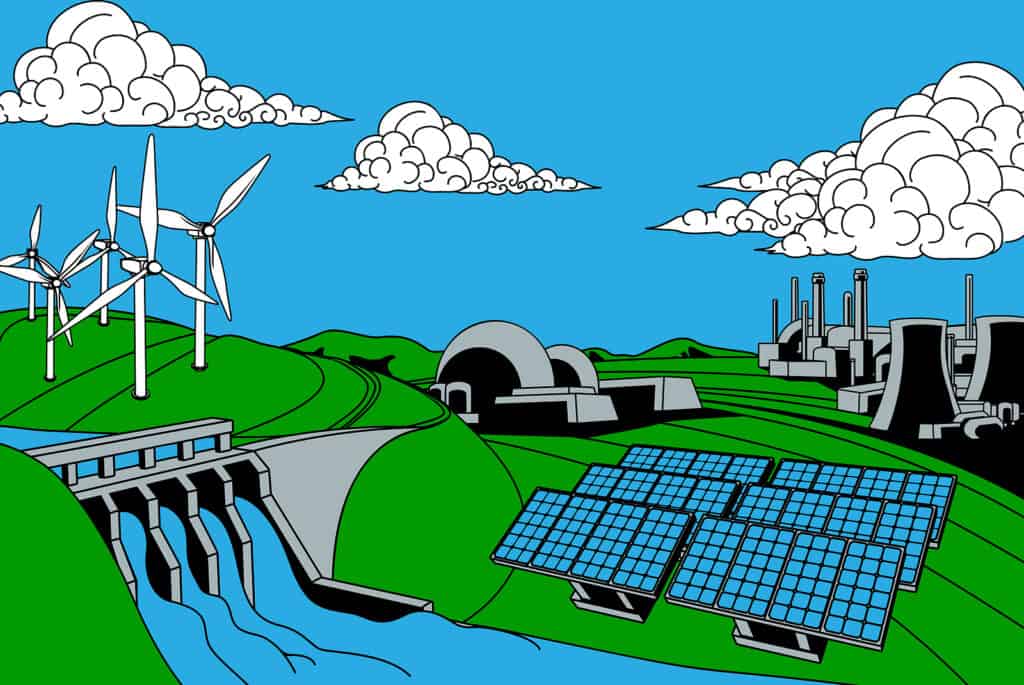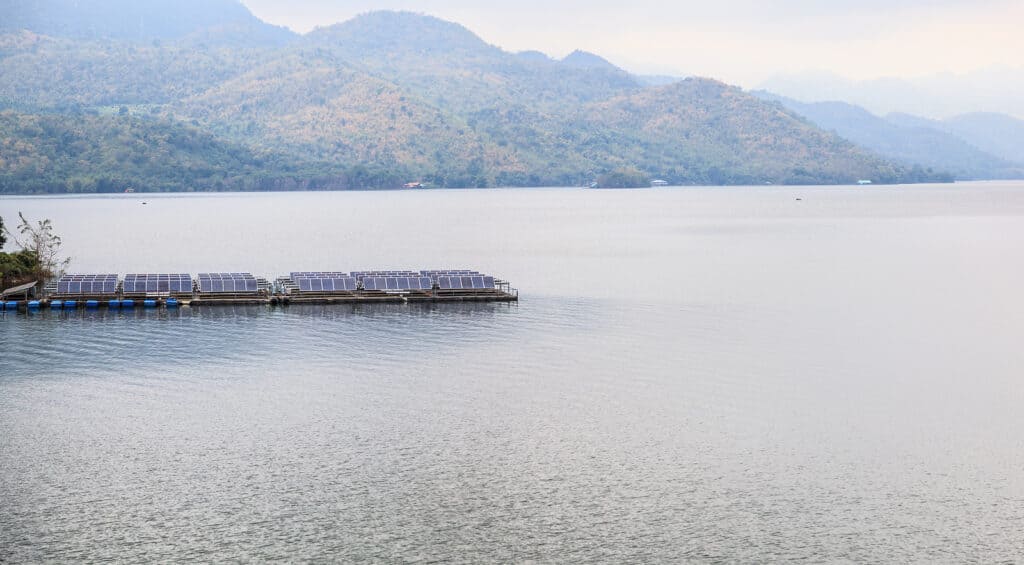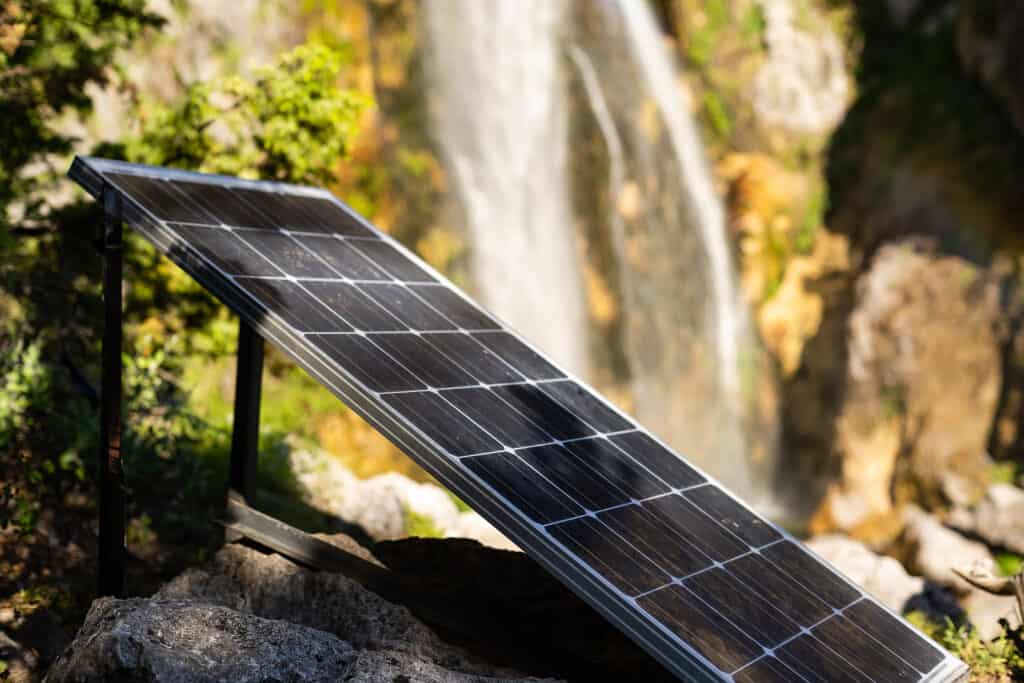BC Hydro Solar Panels
As our company explores ways to incorporate renewable energy solutions and contribute to a more sustainable future, we have turned our attention to BC Hydro's remarkable solar panel program. This comprehensive guide aims to delve into the intricacies of BC Hydro's initiatives, highlighting the benefits, incentives, and potential impact on our journey towards sustainability.
With a commitment to reducing our carbon footprint and mitigating the effects of climate change, we have recognized BC Hydro as a pioneering force in the realm of solar energy. Their robust solar panel program offers us an opportunity to harness the power of the sun and transition to cleaner, renewable energy sources.
Understanding BC Hydro Solar Panels
BC Hydro, the primary electric utility in British Columbia, Canada, has introduced a solar panel program aimed at encouraging residents and businesses to harness the power of the sun. This initiative is designed to promote renewable energy sources and reduce dependence on traditional fossil fuels.
Solar panels, or photovoltaic (PV) systems, convert sunlight into electricity. BC Hydro's solar panel program encourages the installation of these generation system, allowing individuals and businesses to generate their own electricity and feed any surplus power back into the grid.

Benefits of BC Hydro Solar Panels
When you decide to invest in BC Hydro's solar panel program, you unlock a wealth of advantages. Let's delve deeper into these benefits and uncover additional rewards of choosing BC Hydro's solar panels:
Substantial Savings on Energy Costs
One of the most compelling advantages of solar power is the opportunity to significantly slash your monthly energy expenses. When you generate electricity through your own solar panel system, you reduce your dependence on purchased power. Given the rising costs of electricity, this can translate into considerable savings over time. Furthermore, solar power systems are a sound long-term investment, often recouping their initial installation costs over several years through energy cost savings.
Greater Energy Independence
Investing in solar panels empowers you to be less reliant on the grid for your energy needs. This energy independence can prove particularly beneficial during periods of power outages or during peak usage times when electricity rates can surge. By generating your own power, you can ensure a steady, reliable energy supply for your home or business.
Earn with BC Hydro's Net Metering Program
BC Hydro's Net Metering program is a lucrative initiative that allows customers to earn credits for any surplus energy they produce and feed back into the grid. This means your solar panels aren't just saving money, they could be actively earning you credits, offsetting any power you do draw from the grid.
Boost Property Value
Installing solar panels can significantly enhance the value of your property. Potential buyers appreciate the energy-saving benefits and sustainability that a solar power system offers, often resulting in a higher resale value.
Contribute to Environmental Sustainability
By choosing to power your home or business with solar energy, you are contributing to a decrease in greenhouse gas emissions. Solar power is a clean, renewable energy source that helps in mitigating climate change and moving towards a more sustainable future.
Energy Security
With solar panels, you protect yourself against future increases in energy prices. Your energy costs become more predictable, enabling better financial planning.
BC Hydro Net Metering Program
Arguably one of the most appealing features of BC Hydro's solar panel initiative is the innovative Net Metering program. This pioneering scheme opens up a world of possibilities for both residential and commercial customers who have taken the leap into renewable energy generation.
The Net Metering program is ingeniously straightforward – if you, as a customer, generate electricity from your own renewable sources, such as solar panels, and you produce more than you consume, you can feed that excess power back into BC Hydro's grid. But what's the payoff? BC Hydro compensates you with a credit towards your future energy costs, making your investment in renewable energy even more rewarding.
Here's how it works: At the end of each billing cycle, BC Hydro assesses your energy production and consumption. If your solar panels have been basking in the sun and you've generated a surplus of electricity, BC Hydro will apply a credit to your account for this excess. This credit can be used to offset future energy costs, creating a cycle of savings.
On the flip side, if the tables turn and you consume more electricity than your solar panels produce during a billing period, then you are billed for the difference. This arrangement ensures that you always have access to the power you need, whether it's sourced from your own solar panels or from BC Hydro's grid.

The Installation Process
Embarking on the journey to install a solar in BC Hydro entails several critical steps, each integral to ensuring a seamless transition to renewable energy. Let's delve into these stages in more detail:
Site Evaluation and System Design
The initial step in the process involves an in-depth site evaluation conducted by a certified solar installer. The aim of this step is to assess the suitability of your property for solar panel installation. Various factors are considered during this evaluation, including the location of your property, the orientation and pitch of your roof, any potential shading issues, and the overall solar potential of your site for data on.
Once the site evaluation is complete, the installer moves onto the system design. This is a highly customized process, aiming to create a solar power system that is tailor-made to your specific energy consumption patterns and needs. This includes determining the optimal number and placement of panels, the type of inverter, and any additional system components necessary.
Interconnection Application
Upon finalizing the system design, the next step is to submit an interconnection application to BC Hydro. This is a crucial part of the process, as it is where BC Hydro reviews your proposed solar system design to ensure it aligns with their technical requirements and safety standards. Once the application has been reviewed and approved by BC Hydro, you're given the green light to proceed with the solar panel installation.
Installation and Inspection
The installation process is handled by a licensed electrician who is well-versed in solar panel systems. This process typically involves mounting the solar panels on your roof or other designated site, installing the inverter, and integrating the system into your home or business's electrical grid.
Following the installation, a thorough safety inspection is conducted to ensure your system meets all relevant electrical safety standards. This inspection is an essential step in ensuring the safety and effectiveness of your solar energy system.
Connection to BC Hydro's Grid
The final stage in the process is the connection of your system to BC Hydro's grid. Once your system passes the safety inspection, BC Hydro completes the interconnection, which allows you to start generating your own electricity.
From this point forward, you're officially a participant in the Net Metering program. You'll start producing your own clean, renewable energy, contributing to the grid when your production exceeds your consumption, and earning credits towards your energy bills in the process.
Environmental Impact
BC Hydro's solar panel program contributes significantly to environmental sustainability:
- Reduced Carbon Emissions: Solar power is a clean energy source that emits no greenhouse gases during operation, helping to combat climate change.
- Sustainable Energy: Solar power is renewable, unlike fossil fuels. By promoting solar energy, BC Hydro contributes to a more sustainable energy future.
Understanding the Cost and Savings of BC Hydro Solar Panels
Opting to install solar panels is a significant financial commitment. It's vital to thoroughly understand the two key financial aspects of this investment: the initial outlay and the potential savings.
Upfront Costs
The initial cost of setting up a solar panel system is dependent on several factors, primarily the system's size and complexity. Here's a breakdown of the elements that contribute to the overall cost:
- Solar Panels: The price of the panels themselves is a major portion of the cost. The number of panels you need will depend on your energy consumption and the amount of sunlight your property receives.
- Inverter: The inverter, which converts the direct current (DC) electricity produced by the solar panels into the alternating current (AC) used by your home, is another crucial component. The cost of the inverter depends on its quality and capacity.
- Mounting Hardware: The mounting hardware includes the racking system used to attach the panels to your roof or other structure. The cost can vary depending on the type of racking system and the complexity of the installation.
- Installation: The labor costs for the installation process can vary, depending on the complexity of the system and the specific rates of the installation company.
In general, for a typical residential solar panel system, you can expect the total upfront cost to range anywhere between $10,000 to $30,000.
Potential Savings
The potential savings from solar panels are two-fold: reduced energy bills and credits from BC Hydro's Net Metering program. Here's how they work:
- Reduced Energy Bills: Once your solar panels are up and running, they start generating electricity that directly powers your home. This reduces the amount of electricity you need to draw from the grid, leading to lower monthly energy bills. The amount you save will depend on your energy usage and the efficiency of your solar panel system.
- Net Metering Credits: BC Hydro's Net Metering program allows you to earn credits for any excess energy that your solar panels produce and feed back into the grid. These credits can be used to offset your future energy costs.
The exact amount of savings will depend on your individual circumstances, including your electricity usage, the size and efficiency of your solar panel system, and the amount of sunlight your location receives. However, many homeowners find that their solar panels pay for themselves within 10-15 years, thanks to the combination of energy cost savings and Net Metering credits.
The Impact on Property Value
The installation of solar panels isn't just a step towards a sustainable future; it's also a solid investment in your property. Numerous studies and real estate reports point towards a marked increase in the value of properties equipped with solar panels. Here's how solar panels contribute to elevating your property's worth:
Potential Energy Cost Savings
Homebuyers today are increasingly savvy about the long-term costs of owning a home, and energy costs form a significant part of this equation. A home equipped with solar panels promises potential energy cost savings, making it more attractive to prospective buyers. This potential for lower utility bills can translate into a higher selling price when it's time to put your property on the market.
Growing Demand for Sustainable Housing
The demand for sustainable and energy-efficient homes has seen a sharp uptick in recent years. Homebuyers are not only looking for homes that are friendly to the environment but are also willing to pay a premium for such properties. A house with a solar panel system clearly falls into this category, making it a desirable option for environmentally-conscious buyers.
Multiple studies back this up, indicating a positive correlation between solar panel installation and property value. In fact, properties with solar panels often sell for a premium compared to those without, highlighting the financial benefits of this green investment.
Solar Panels Maintenance and Durability
A common query that arises when contemplating a switch to solar energy is the maintenance and durability of solar panels. The good news is that solar panels require relatively minimal maintenance, and they boast a long lifespan. Let's examine these aspects more closely:
Solar Panel Maintenance
Maintaining solar panels is a fairly simple task, primarily revolving around cleanliness. To ensure that your solar panels function at peak efficiency, it's important to keep them free from dirt, dust, and debris, as these can block sunlight and hamper the panels' performance. Here are a couple of maintenance tasks you may need to undertake:
- Regular Cleaning: Depending on your location, you might need to clean your solar panels a few times a year. In most cases, a simple hosing down with water can do the trick. However, for more stubborn dirt, a mild detergent and soft brush might be necessary. It's crucial to avoid harsh cleaning materials that could scratch the panels' surface.
- Clearing Debris and Snow: Debris like leaves or bird droppings can affect your panels' ability to capture sunlight. Regular checks and quick cleaning can keep them in optimal condition. Additionally, in colder climates, snow may accumulate on your panels during the winter months. It's important to clear this snow to allow the panels to continue generating electricity.
Solar Panel Durability and Warranty
Solar panels are built to last. They have to withstand varying weather conditions, from blazing summer heat to winter snowstorms. Most solar panels come with a warranty that guarantees their performance for 25 years. However, this doesn't mean they stop working after that. In fact, many solar panels continue to function effectively beyond their warranty period, often reaching 30 to 40 years with proper care and maintenance.
The Future of Solar Power with BC Hydro
BC Hydro's unwavering dedication to advancing solar power signals a promising future for renewable energy in British Columbia. The organization continually explores innovative ways to enhance and expand its solar programs, contributing to a cleaner and more sustainable province. Here's a glimpse into BC Hydro's future-focused initiatives in solar power:
Continuous Improvement
At the core of BC Hydro's mission is a commitment to continuously improving the performance, efficiency, and accessibility of its solar power programs. This involves conducting research, adopting new technologies, and refining operational processes. The goal is to maximize the benefits of solar power for its customers while minimizing the costs and environmental impact.
Expansion of Solar Programs
BC Hydro isn't just about improving its existing solar power programs; it's also about expanding the reach of these programs. The organization actively explores new avenues and opportunities to extend the benefits of solar power to more of its customers, including those in remote or underserved communities.
Pilot Projects and Community Solar Farms
One of the most exciting developments in BC Hydro's commitment to solar power is its exploration of community solar farms. These pilot projects are investigating the potential of shared solar installations that allow individuals to purchase solar energy from a communal source. This is a game-changing initiative for those who may not have the ability to install their own solar panels, such as those living in apartment buildings or houses without suitable rooftops.
Are Solar Panels Worth it in BC: Evaluating Cost and Worthiness
BC solar incentives can be a worthwhile investment in British Columbia (BC) due to the province's ample sunlight and various incentives for renewable energy. Solar energy can help reduce your electricity bills and carbon footprint while potentially providing a long-term return on investment. However, the cost-effectiveness of solar panels for homes depends on several factors.
Sunlight availability
BC receives a good amount of sunlight, especially during the summer months. Areas with high solar irradiance, such as southern BC, generally have more potential for solar energy generation.
System size and energy consumption
The solar panels vancouver cost size of the solar panel system you install depends on your energy needs. A larger system can generate more electricity but will also have a higher upfront cost. Assess your current and future energy requirements to determine the system size that suits your needs.
Cost of solar panels in bc
The cost of installing solar panels can vary depending on factors such as the type and quality of panels, mounting equipment, inverters, and labor costs. Obtaining multiple quotes from reputable solar installers in your area is recommended to compare costs and find the best deal.
Incentives and rebates
BC offers various incentives and rebates to promote solar energy adoption. For example, the province has a Net Metering Program that allows you to receive credits for excess electricity generated by your solar panels and feed it back into the grid. There may also be federal incentives available, such as the Canada Greener Homes Grant, which provides financial support for energy-efficient home upgrades, including solar installations.
Long-term savings
Solar panels can generate electricity for 25 years or more, providing long-term savings on your electricity bills. BC has a tiered electricity rate structure, meaning that the cost per kilowatt-hour increases as you consume more energy. By generating your electricity, you can offset higher-priced tiers and reduce your overall energy costs.
Conclusion
In conclusion, as our company explores renewable energy solutions and strives to make a positive impact on the environment, BC Hydro's solar panel program has emerged as a beacon of hope. Our journey into the world of solar energy with BC Hydro has uncovered a wealth of benefits and incentives that align perfectly with our commitment to sustainability.
By embracing BC Hydro's solar panel program, we have the opportunity to significantly reduce our carbon footprint and contribute to the fight against climate change. The substantial savings on energy costs, coupled with the potential to earn credits through the Net Metering program, make the transition to solar power financially viable and rewarding. We have the chance to increase our energy independence, ensuring a reliable power supply even during outages or peak usage times.
Moreover, investing in solar panels elevates the value of our property, attracting buyers who appreciate the long-term cost savings and sustainability that comes with solar energy. We can take pride in knowing that our decision to go solar is not only financially beneficial but also contributes to the growing demand for sustainable housing.
Sources

